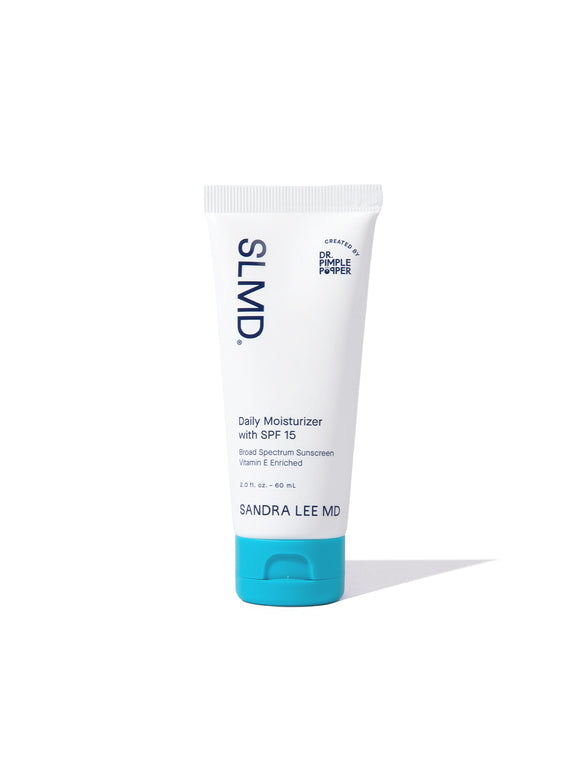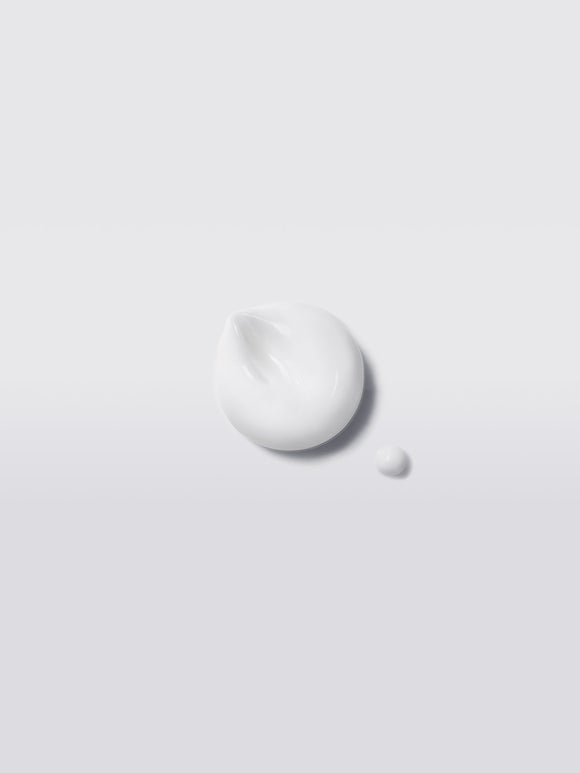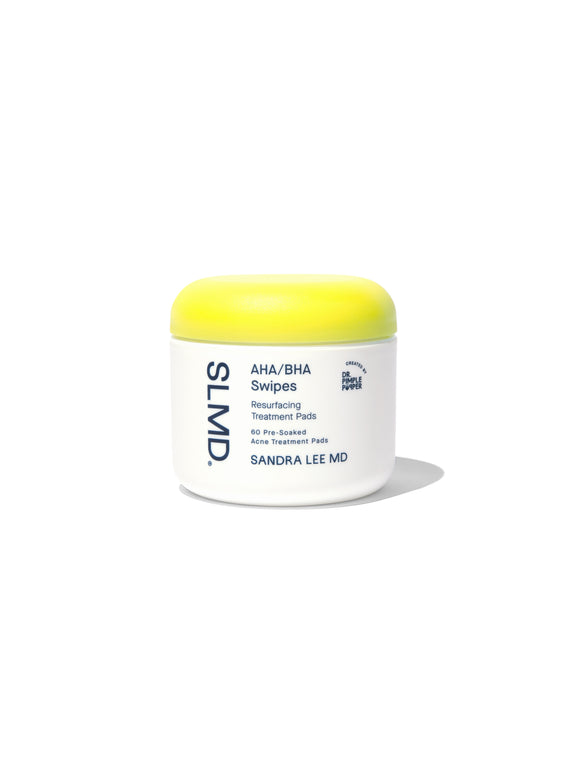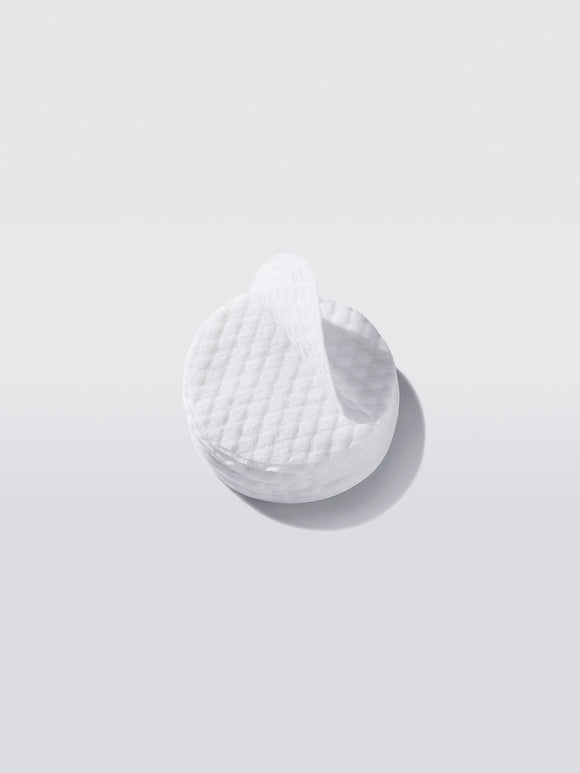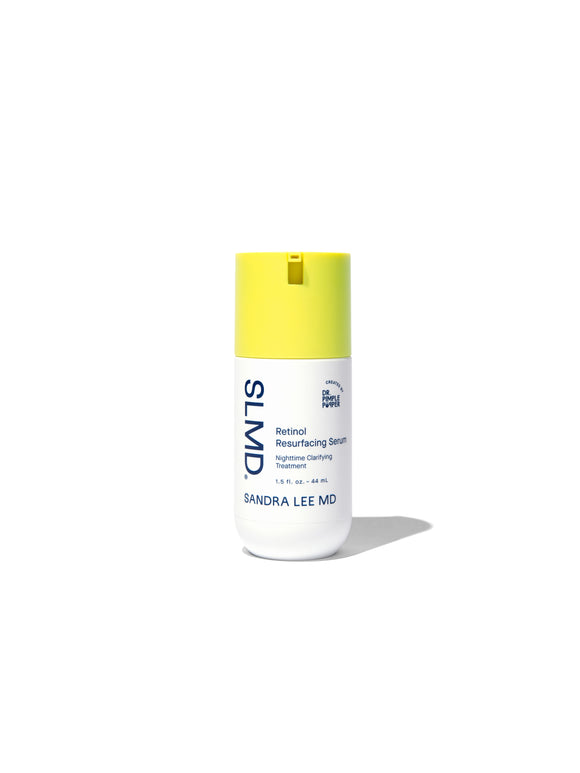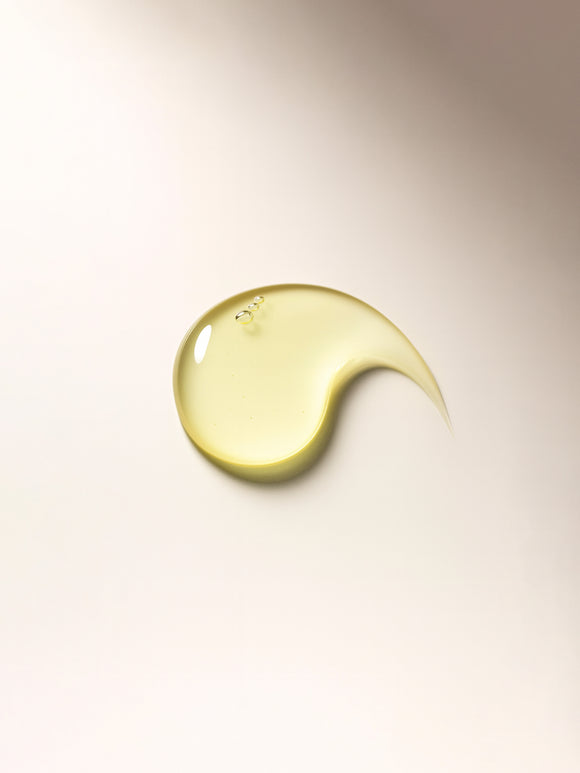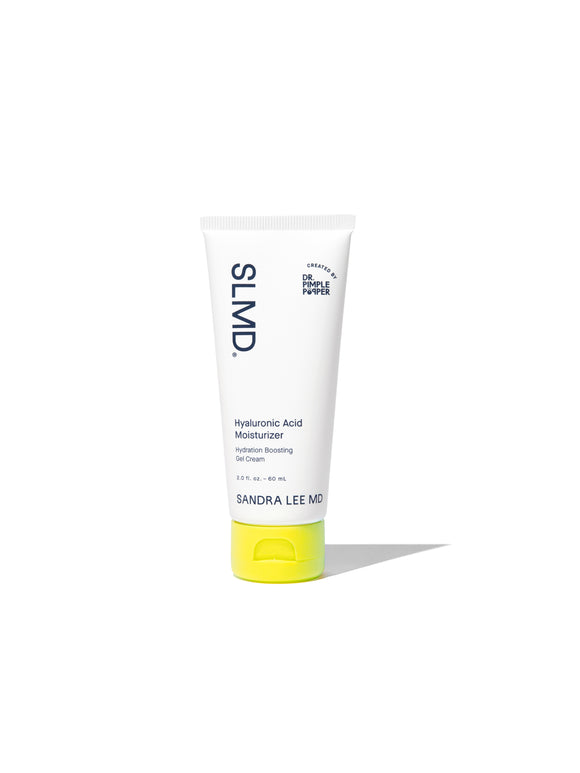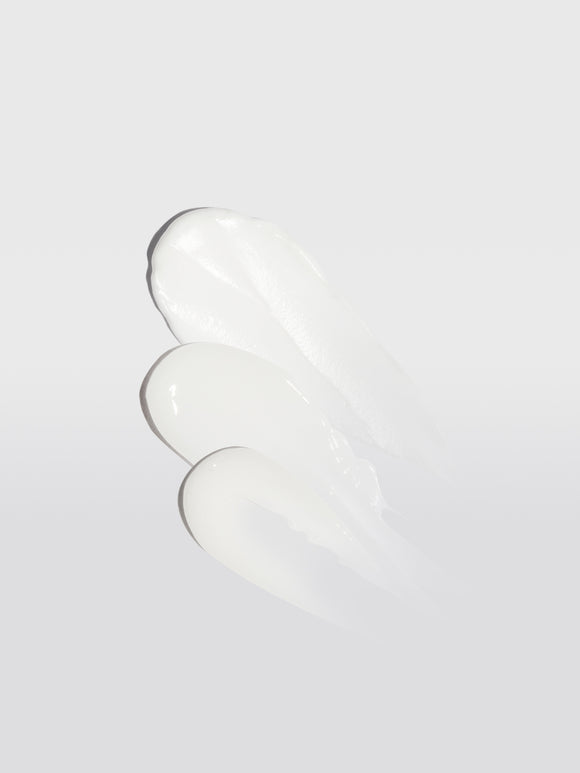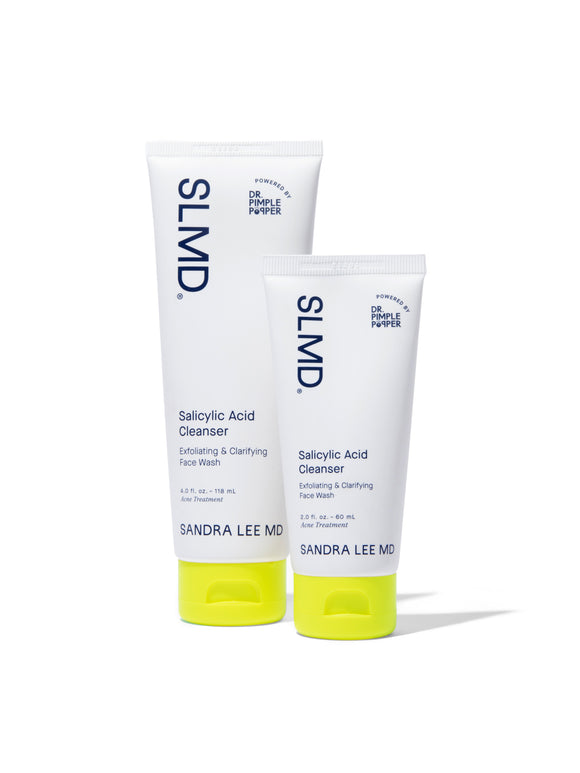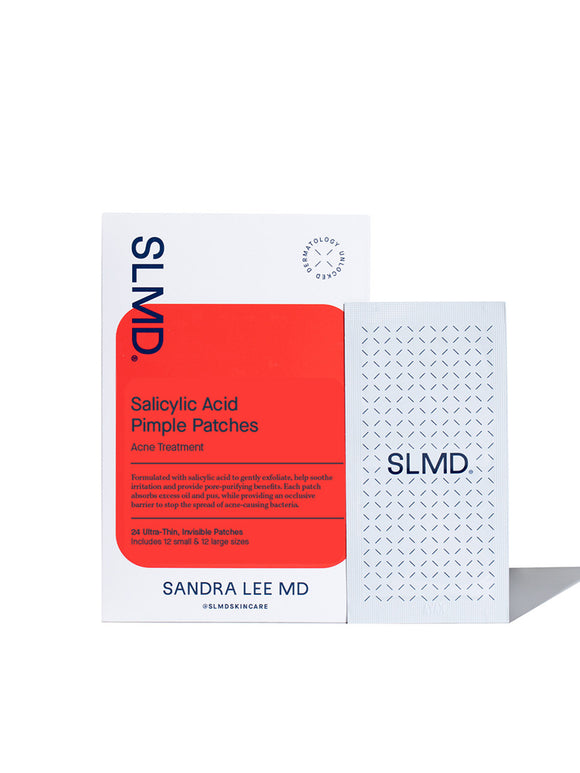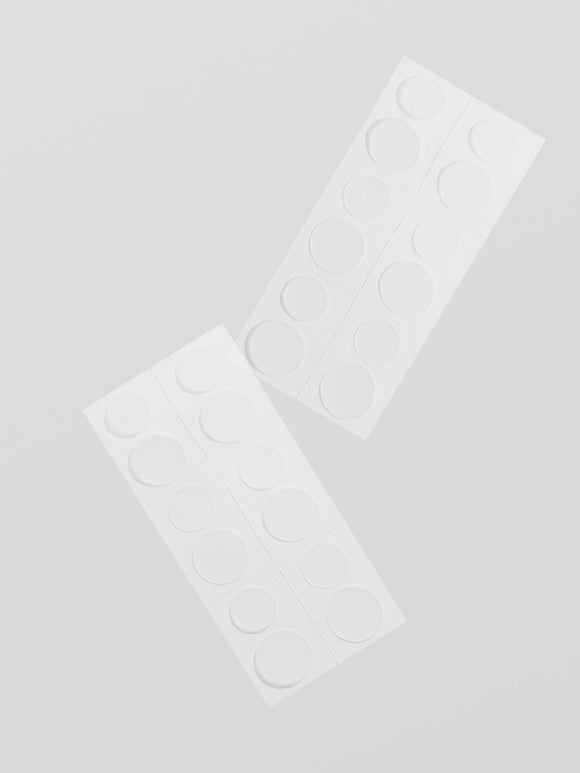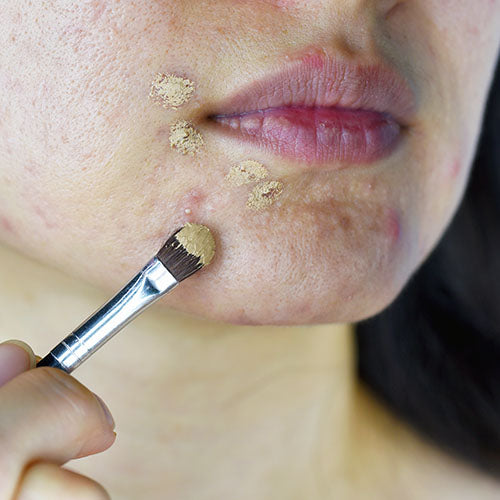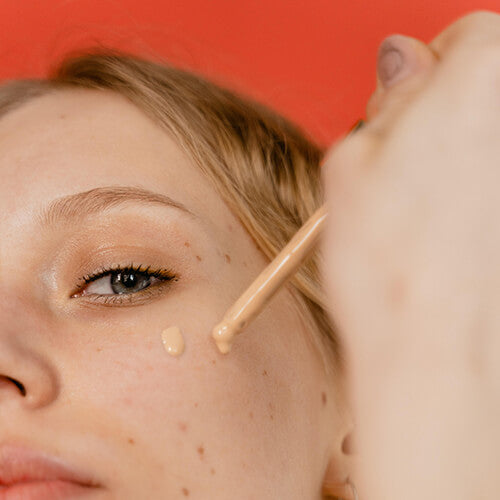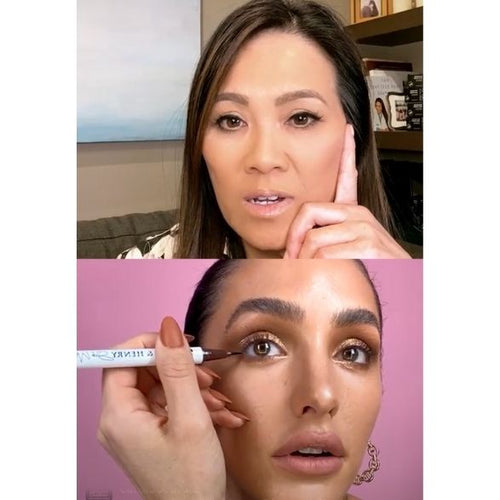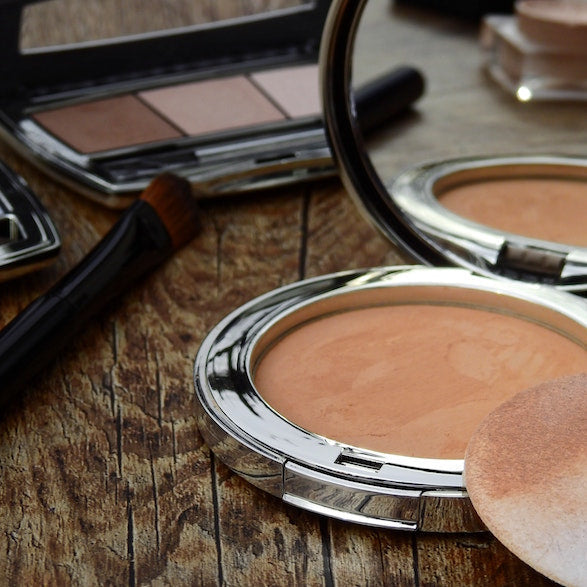
How to Wear Makeup Without Breaking Out — According to a Dermatologist
Dr. Pimple Popper’s tips and tricks to keep your skin healthy while wearing makeup.
Published:
3 minute read
Wearing makeup doesn’t have to mean compromising your skin. Whether you’re dealing with breakouts, dry patches, or just want a flawless canvas, these dermatologist-approved tips from dermatologist and SLMD Skincare founder Sandra Lee, MD (aka Dr. Pimple Popper) will help you protect your skin while enjoying your favorite products.
Step 1: Start with a clean, prepped face
Makeup sits best — and causes fewer problems — on healthy skin.
- Cleanse gently, ideally with a formula that includes exfoliating ingredients like salicylic acid to help keep pores clear. Try: SLMD Salicylic Acid Cleanser
- Hydrate your skin with a lightweight, non-comedogenic moisturizer. Try: SLMD Hyaluronic Acid Moisturizer, Facial Moisturizer with Vitamin C
- Protect with SPF — look for formulas with broad spectrum protection and antioxidants. Try: SLMD Daily Moisturizer with SPF 15
Dr. Pimple Popper tip: “Makeup looks better — and wears longer — when your skin is properly cleansed and hydrated first.”
Step 2: Choose makeup that’s skin-friendly
If you’re acne-prone or sensitive, steer clear of heavy, occlusive formulas that can clog pores. Look for:
- Non-comedogenic or oil-free foundations
- Products with active ingredients like salicylic acid
- Lightweight setting powders or mineral-based formulas
Dr. Pimple Popper's Makeup Prep Recs
Step 3: Remove makeup without wrecking your skin
Thoroughly removing makeup is essential to prevent irritation and clogged pores:
- Start with micellar water or a gentle makeup remover
- Follow up with a gentle exfoliating cleanser (like SLMD Salicylic Acid Cleanser)
Use a clean washcloth or soft pads — never scrub — and always moisturize afterward.
Dr. Pimple Popper tip: “Taking off your makeup thoroughly is just as important as how you put it on.”
Step 4: Don’t cover up — treat the root cause
If you’re using makeup to camouflage acne or discoloration, prioritize treating the issue at the source:
- Spot treat breakouts with salicylic acid or benzoyl peroxide formulas — patches and creams both work. Try SLMD Salicylic Acid Pimple Patches, SA Acne Spot Treatment, BP Acne Spot Treatment
- Fade dark spots with ingredients like kojic acid or niacinamide. Try: SLMD AHA/BHA Swipes
- Improve texture and tone with a nighttime retinol routine. Try: SLMD Retinol Resurfacing Serum
Dermatologists even have a name for breakouts triggered by makeup — acne cosmetica. Want help figuring out if your makeup might be contributing to your acne? Dr. Lee breaks it down here.
Step 5: Clean Your Tools — Often
Your brushes and sponges can harbor bacteria, oil, and makeup buildup — all of which can contribute to breakouts. This kind of contamination is a common cause of makeup-related acne, especially a condition called acne cosmetica. Wash them at least once a week using gentle soap or brush cleanser, and let them air dry completely.
Dr. Pimple Popper tip: “Clean tools = clean face. Don’t let dirty brushes undo your skincare routine.”
FAQ: Wearing makeup without breaking out
Q: Can you wear makeup every day if you have acne?
A: Yes — as long as your makeup is non-comedogenic and you're diligent about cleansing and spot treating as needed.
Q: Is mineral makeup better for acne-prone skin?
A: Often yes. Mineral makeup is usually free of irritating ingredients and provides natural coverage.
Q: Do tinted moisturizers clog pores less than foundation?
A: Not always — it depends on the formula. Look for “non-comedogenic” on the label, and patch test if you’re sensitive.
Q: How can I prevent clogged pores under makeup?
A: Start with clean, exfoliated skin. Use a gentle chemical exfoliant (like salicylic acid) 2–3 times per week.
Q: Are there specific makeup ingredients that can trigger breakouts?
Certain ingredients can clog pores for some people. If you’re prone to breakouts, look for non-comedogenic makeup and skincare, and patch test new products when possible.
Q: Do I need to stop wearing makeup to clear my skin?
A: Not necessarily. With the right skincare and product choices, most people can wear makeup without causing breakouts.

Dr. Lee's Last Word
Wearing makeup shouldn’t be a source of skin stress. With a few smart choices — and the right skincare routine — you can glow with confidence.





